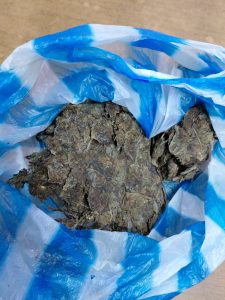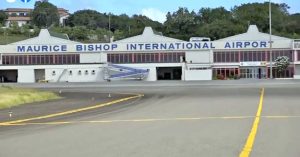By Sue-Ann Wayow
THE 48-inch water transmission line that caused much distress to residents in need of water in north Trinidad did not just rupture but imploded.
This was revealed by chairman of the Water and Sewerage Authority (WASA) Ravindra Nanga in a video statement on Saturday.
About 250,000 WASA customers from Oropune in the east to St James in the west were affected and without water for at least four days last week.
Paid political advertisement
Nanga said, “The rupture was not the typical leak that sprung, in fact, what occurred is that the pipeline imploded… It did not spring the normal leak that persons are accustomed to seeing.
“This is a pipeline that was buried and a section of that pipeline which was situated immediately outside the water treatment plant so that it is designed to take high pressures, it imploded.”
Last Tuesday, at approximately 10 am, there was a rupture at the line located at the Caroni Water Treatment Plant.
As at Monday, there were still some communities that complained about low-water pressure.
Nanga said, “We are very concerned that the line imploded and once we have completed repairs that are up to a satisfactory standard, we will be launching an investigation to determine what occurred and to take steps to ensure that it does not re-occur.”
Admitting the situation to be “a catastrophic failure,” he said, “When we excavated we were not prepared for what we saw. What we discovered is that the pipeline was a steel encased in concrete pipeline that was laid since 1979. That type of pipeline is no longer in use anywhere in the world.”
Unlike what the public may believe about the situation based on information or misinformation being shared, Nanga said crews were immediately mobilised and supervised by the Deputy Chairman of the WASA Alston Fournillier however repairs were challenging.
He said although the imploded section had to be cut out and a new pipe fused by Thursday morning, as a result of that fixture, another leak occurred but was not as catastrophic as the implosion.
WASA restarted its supply of water to customers on Friday, by Saturday, a number of the booster stations were back up and reservoirs replenished, he said.
More communities began receiving water, Nanga said.
He also said the fixture was not ideal and a steel pipe is going to replace the concrete-encased pipe.
Nanga said if any other leaks occurred after that, it will be “traditional type of leak” that will be able to be addressed without major complications.
The laying of the new pipeline would have begun by Sunday once the trenches were dug as the pipelines were already at the site, he said.
Nanga also thanked the National Gas Company for assisting as a company with an “extensive experience in pipeline technology.”
He promised, “Definitely within a week, there will be a permanent fix to this problem and there would no longer be persons affected by this issue.”
![]()













